Inauguration Ceremony in Warsaw: EHRI Becomes an ERIC to Secure the Future of Holocaust Research
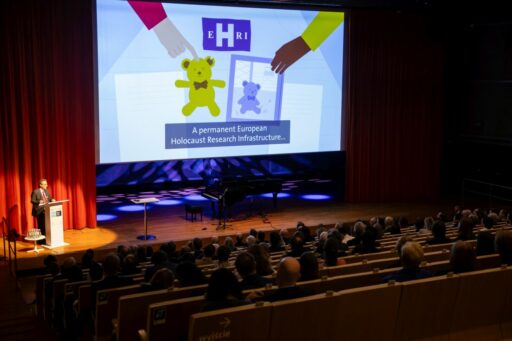
Warsaw, 26 January 2025: On the eve of the commemoration of the 80th anniversary of the liberation of Auschwitz-Birkenau, the European Holocaust Research Infrastructure (EHRI) was inaugurated as a permanent European Research Infrastructure Consortium (ERIC) during a ceremony at the Polin Museum in Warsaw. See here for the programme.
This follows the decision of the European Commission (EC) on 20 January 2025 (EC News Alert) to establish the European Holocaust Research Infrastructure as a European Research Infrastructure Consortium (ERIC). In doing so, the EC secures EHRI’s future and supports its vision to provide seamless access to all sources and expertise from across Europe and beyond that are relevant to the study of the Holocaust. The EU hereby clearly confirms the relevance of Holocaust research for free and open societies with shared democratic values.
EHRI’s inauguration ceremony was opened by Hanna Wróblewska, Minister of Culture and National Heritage of Poland, and Władysław Teofil Bartoszewski, Secretary of State for Foreign Affairs of Poland, on behalf of the Polish Presidency of the Council of the European Union. Eppo Bruins, Dutch Minister of Education, Culture and Science, spoke on behalf of the hosting country of EHRI-ERIC, the Netherlands.
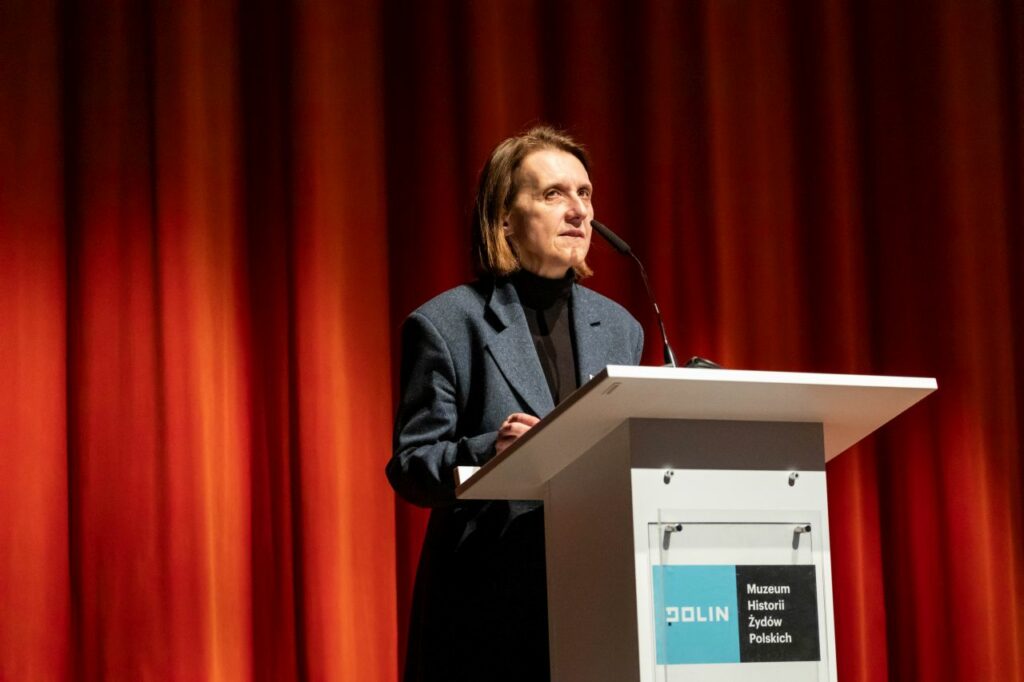
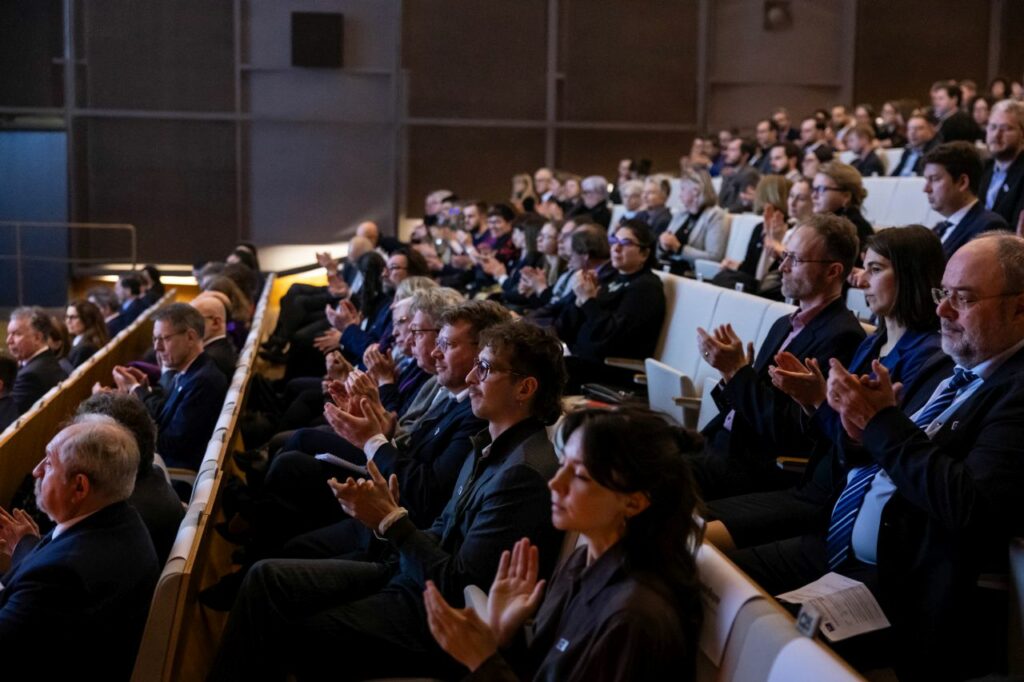
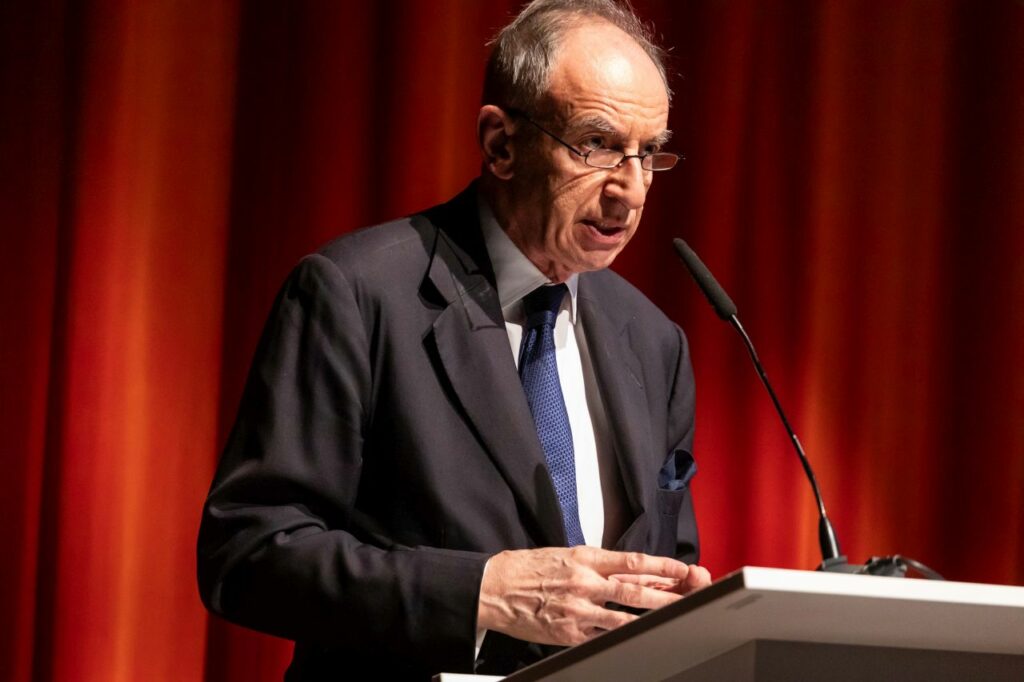
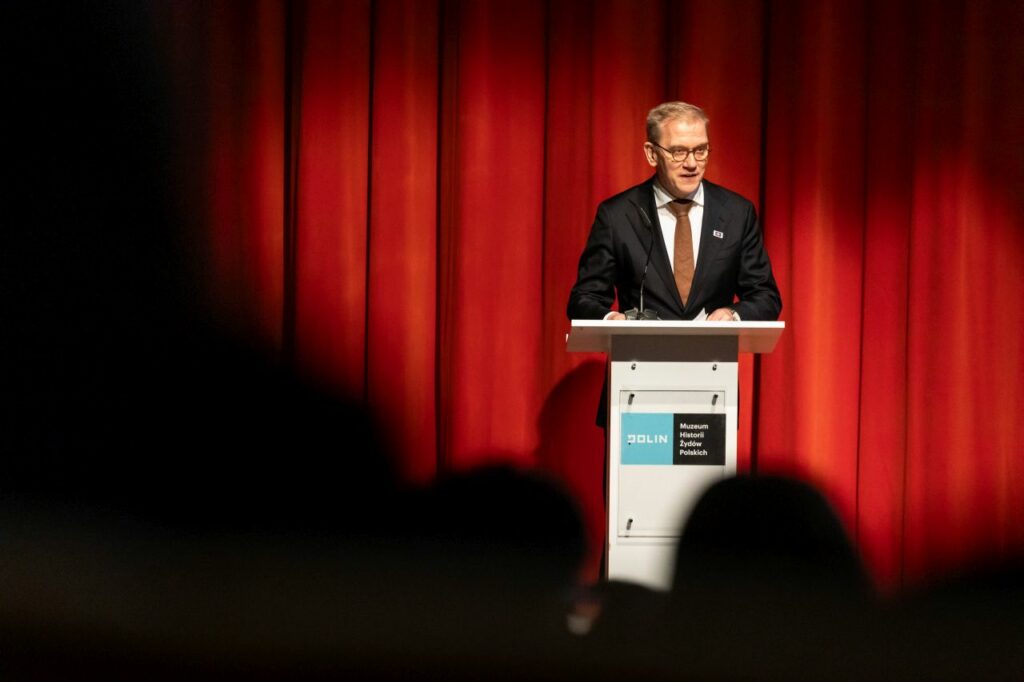
Minister Bruins: ‘Examining your past is the best way to a better future. The EHRI collects public information about the Holocaust, making it more accessible to researchers and other interested parties. My heartfelt wish is that EHRI can give a face to the horrors of the Holocaust for ever-new generations. That knowledge and research into our past can be a powerful antidote to the antisemitism in our societies, and a reminder that Europe rose from the ashes of Auschwitz. It is an honor to welcome this important research institute to the Netherlands. Read the speech of Minister Eppo Bruins.
Distinguished representatives from all ten founding member countries reiterated their support of Holocaust research and documentation by signing a symbolic declaration.
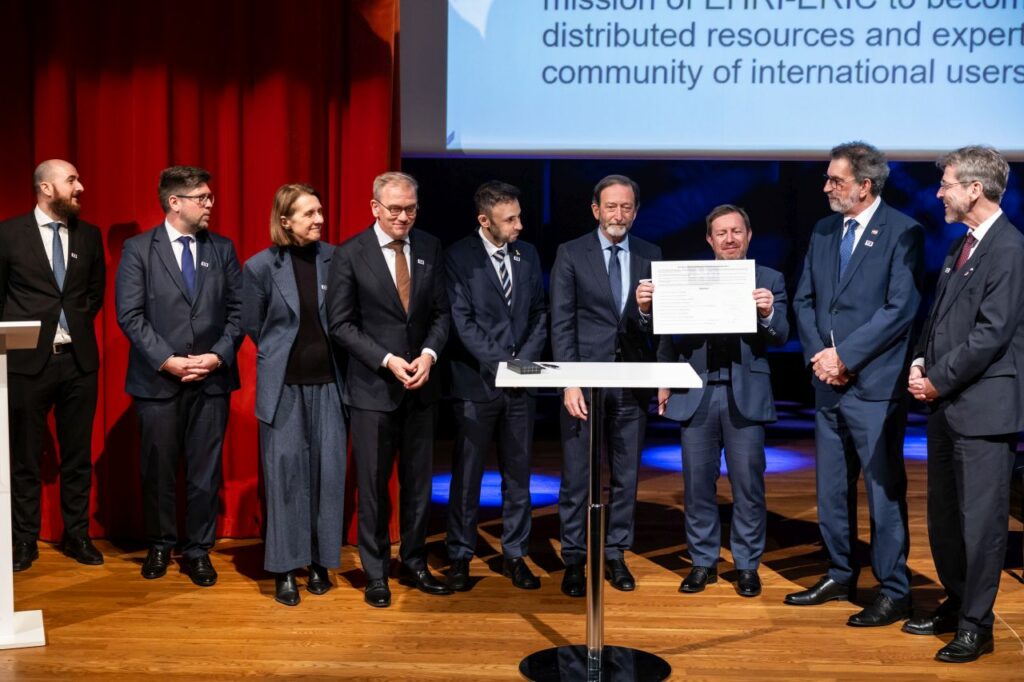
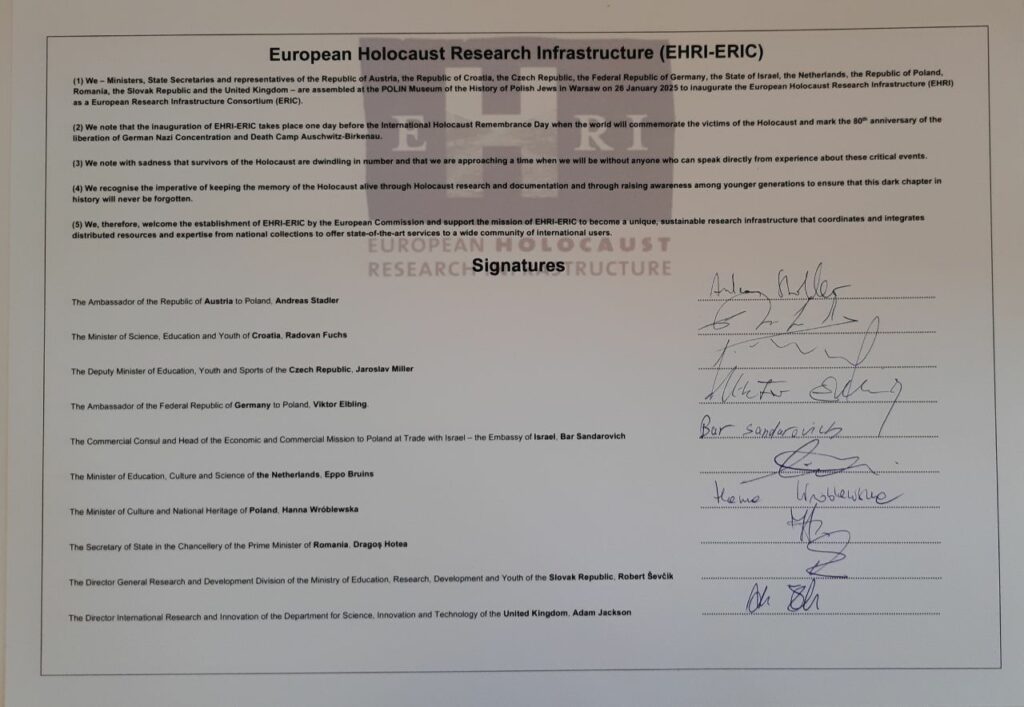
EHRI-ERIC was particularly honoured to welcome Krystyna Budnicka, Honorary Citizen of Warsaw who survived the Holocaust in the Warsaw Ghetto. With her story, she gave an extra reminder of why this ceremony had gathered and the importance of keeping Holocaust history alive.
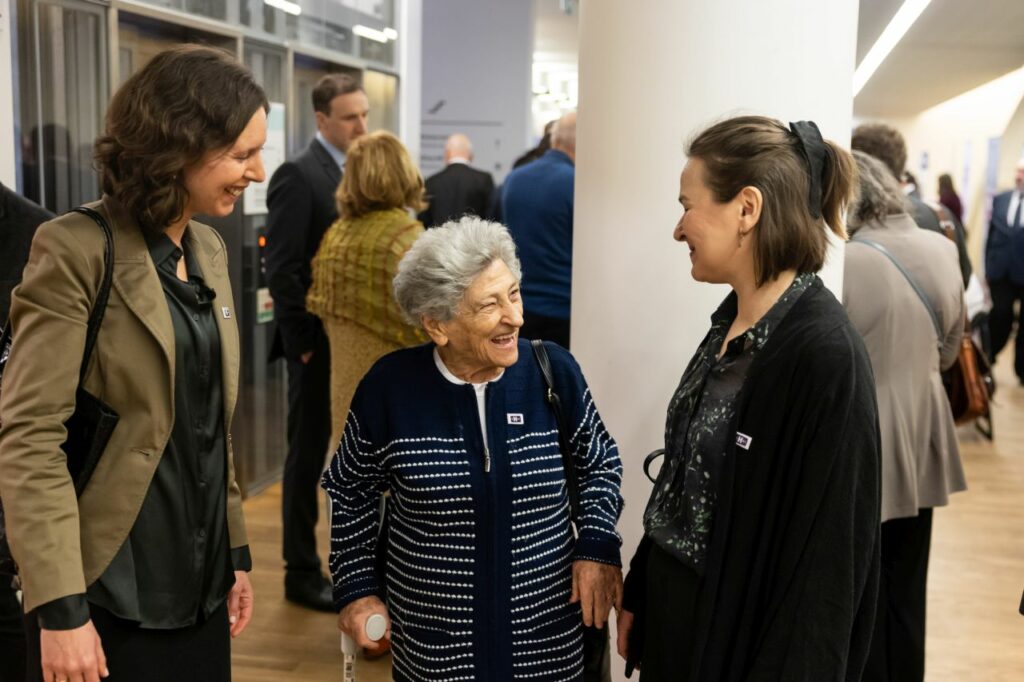
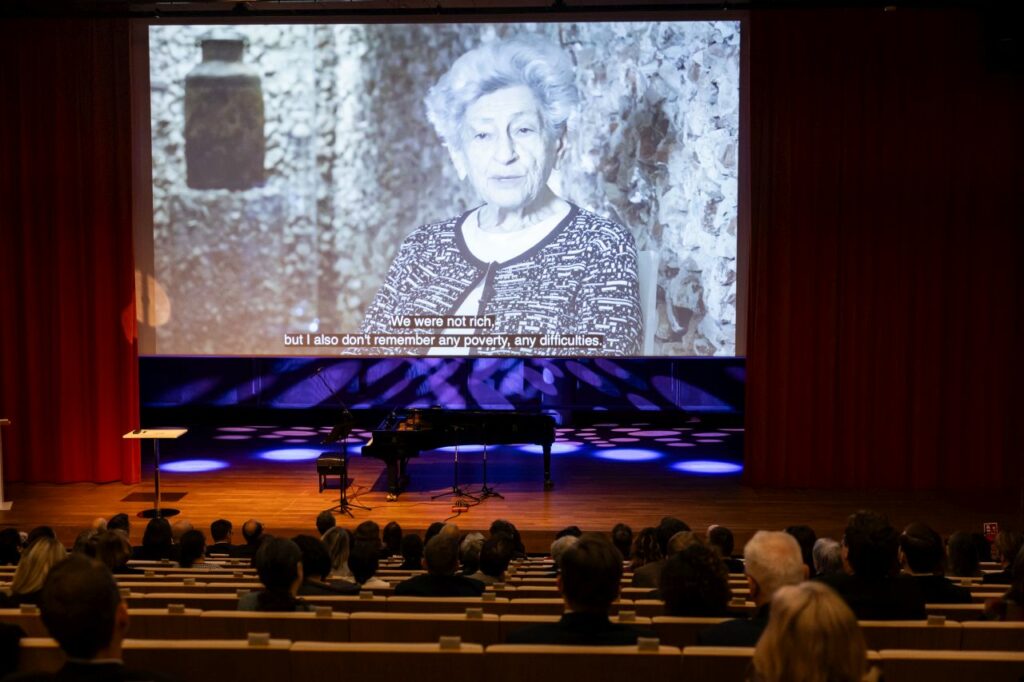
Katharina von Schnurbein, EC’s Coordinator on combating antisemitism and fostering Jewish life addressed the audience as a representative of the European Commission. Longstanding EHRI supporter Christian Ehler did so as a member of the European Parliament.
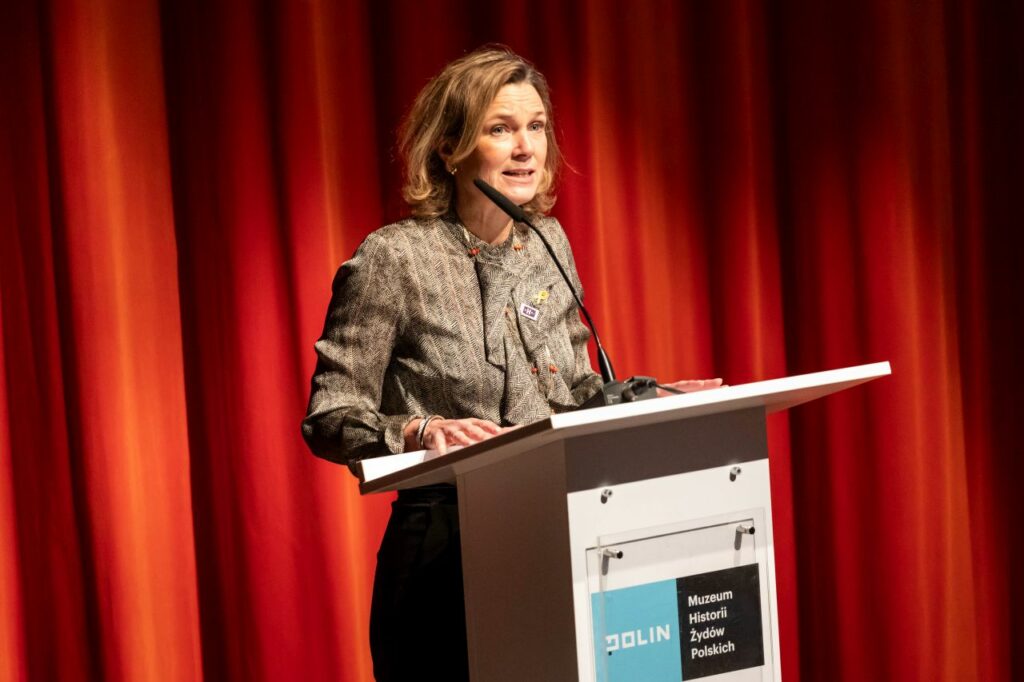
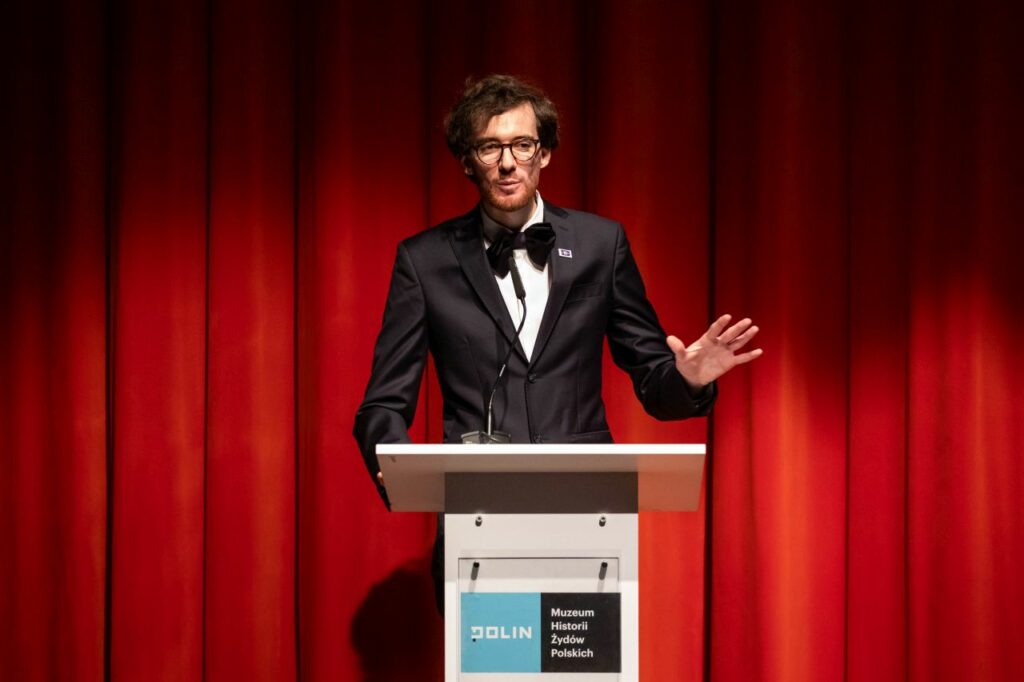
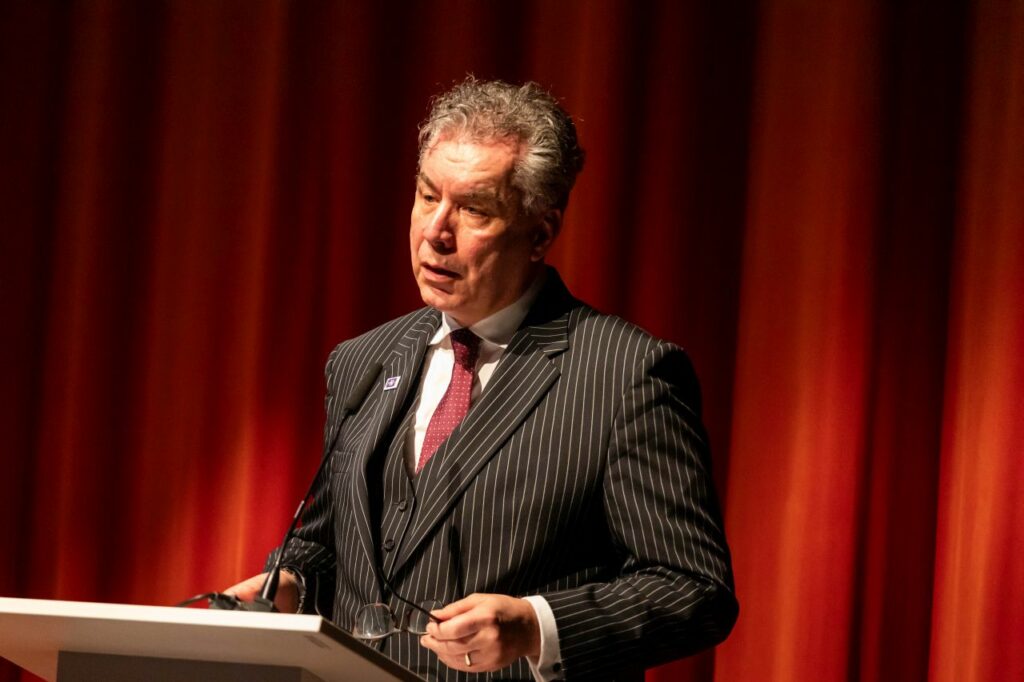
The inauguration ceremony was also attended by high-level representatives from the European Commission and governments and from the partner institutions that have worked together to establish the European Holocaust Research Infrastructure as it is today during the consecutive EHRI-projects. In addition to formally launching EHRI-ERIC, the ceremony also offered a unique opportunity to reflect on the enduring significance of Holocaust research, documentation and commemoration in contemporary European societies.
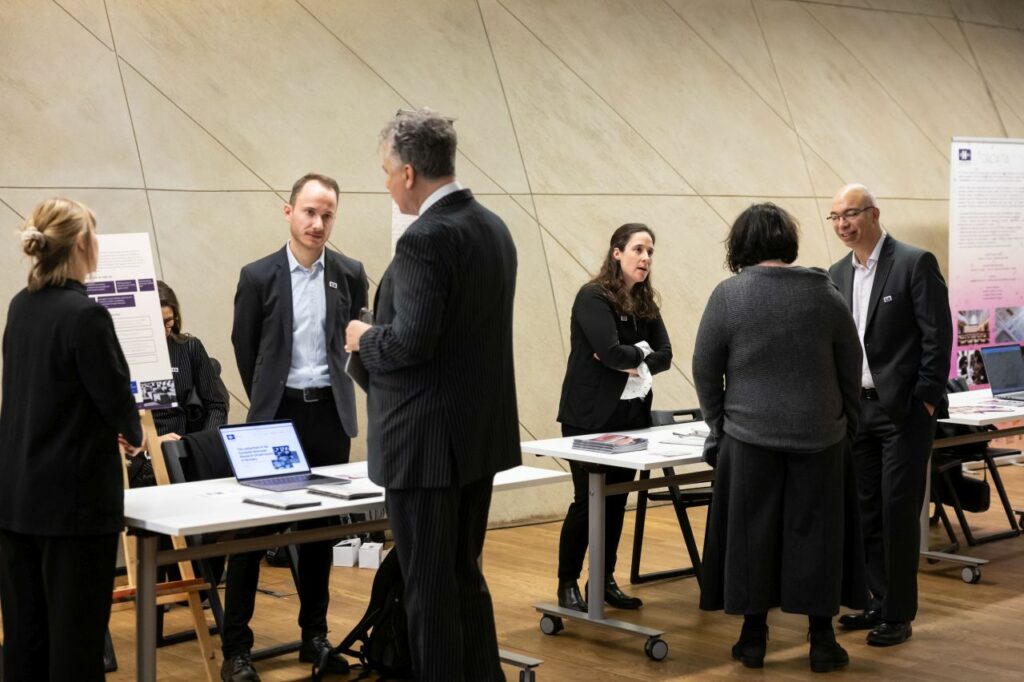
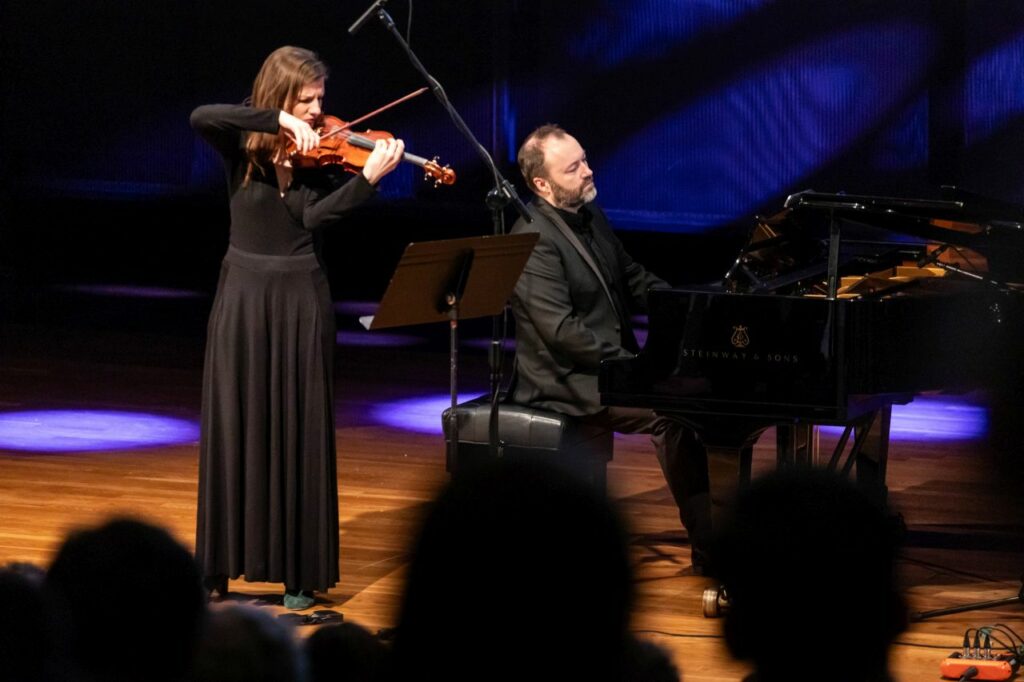
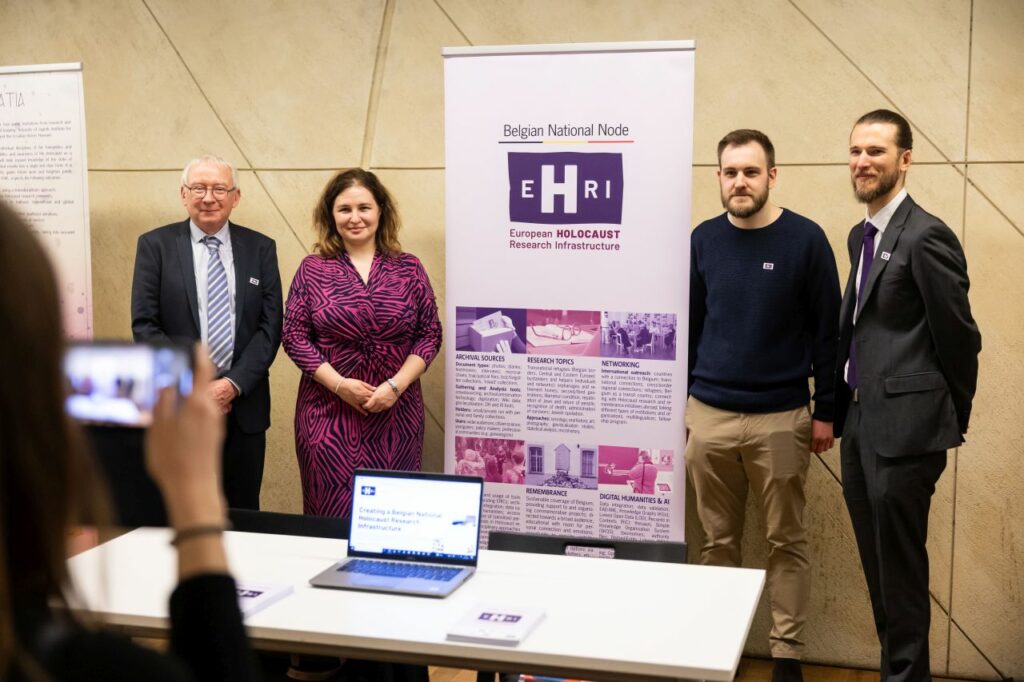
After a moving musical interlude, Director of the EHRI-ERIC, Reto Speck, held a speech on the history, the working structure and mission of the new EHRI-ERIC, illustrated with a short video.
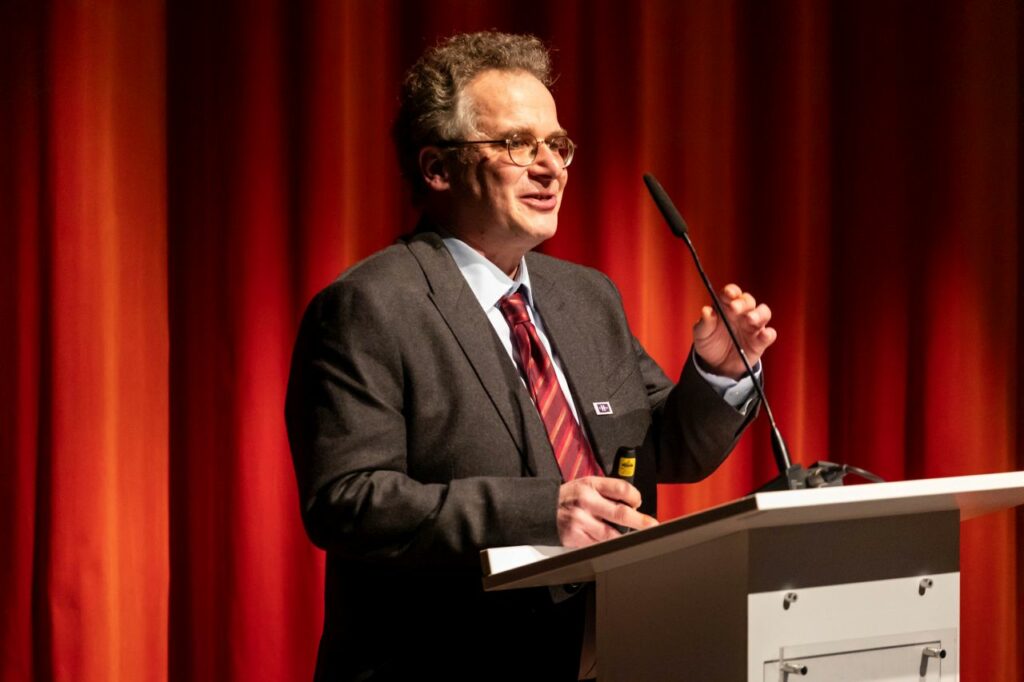
“EHRI has been successfully supporting transnational Holocaust research and documentation since 2010. Becoming a permanent ERIC is a significant milestone for us. Thanks to the support of our founding members and the European Commission, we can ensure the long-term sustainability of our work and expand our activities and services. But establishing EHRI as a permanent European organisation is not only important for scientific reason. It also signals that Holocaust archives and research matter and that Europe can only flourish if it understands its history and continues to consider the lessons and legacies of its darkest chapter. For me, that has been one of the key motivations to work towards becoming an ERIC, and I am very pleased to be able to celebrate this achievement today.” Dr Reto Speck, Co-Director of EHRI
Before the closing of the event, Reto Speck took the opportunity to thank especially two strong supporters of EHRI, right from its earliest inception in 2010 until the foundation of the ERIC, Christian Ehler, MEP, and Robert-Jan Smits, President Eindhoven University of Technology. Robert-Jan Smits served as a Director-General of Research and Innovation at the European Commission from 2010-2018.In this capacity he was the architect of Horizon 2020, the 80 billion EU Research and Innovation program. Under his guidance and inspiration, the very first proposal of a European Holocaust Research Infrastructure project was awarded European funding in 2010.
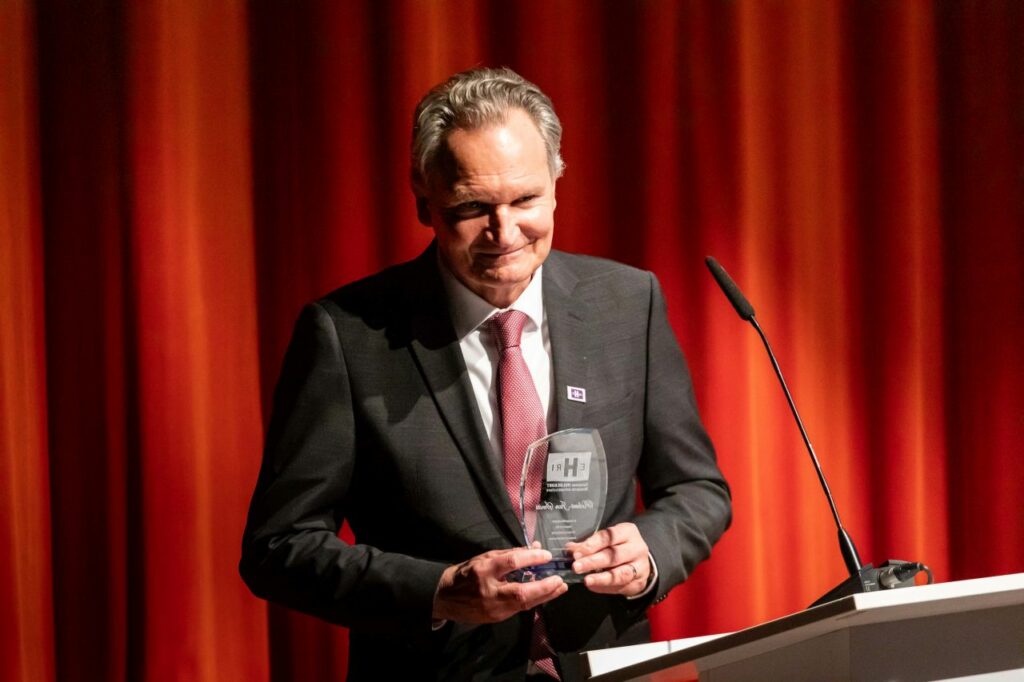
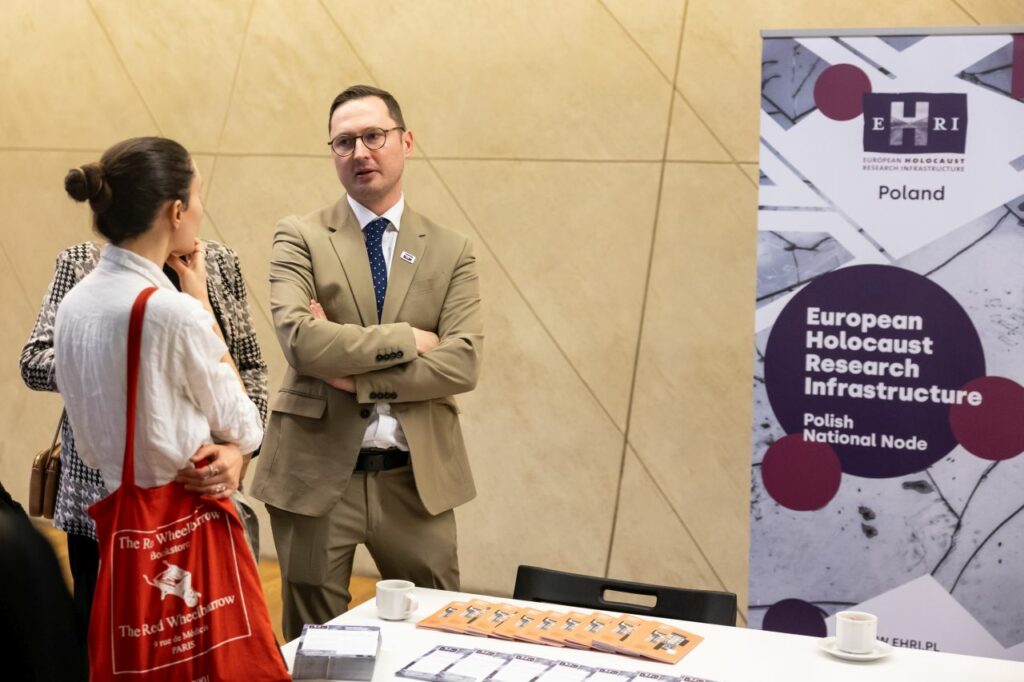
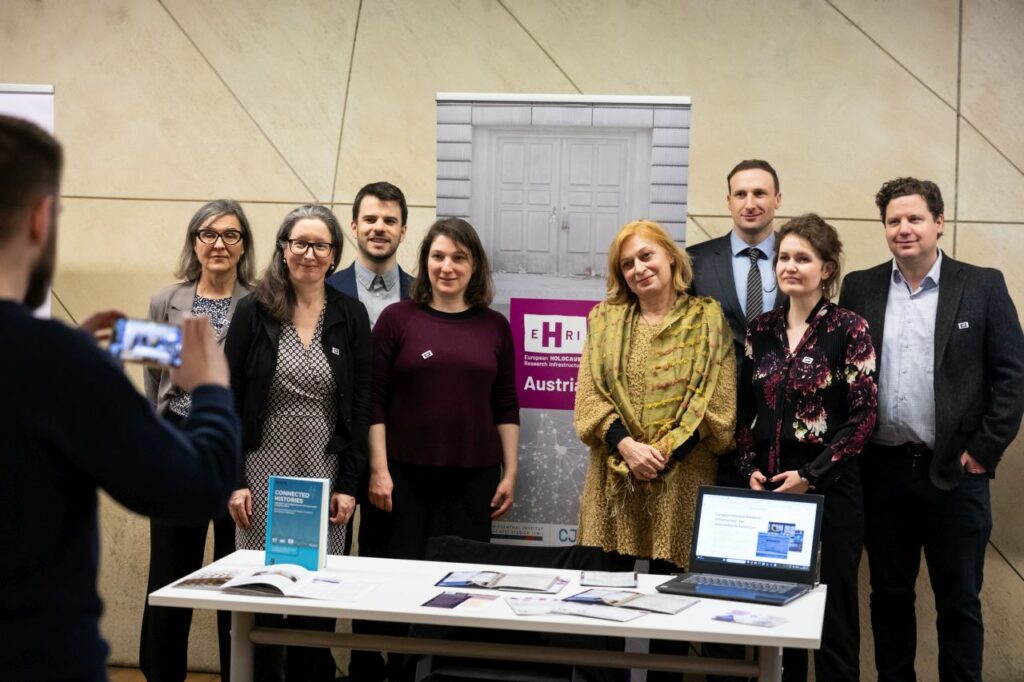
The EHRI-ERIC will be headquartered in the Netherlands, one of ten founding countries that further include Austria, Croatia, Germany, Israel, Poland, Romania, Slovakia, the Czech Republic and the United Kingdom. Belgium intends to join EHRI-ERIC in 2025, and EHRI is already reaching out to other countries to join in the near future.
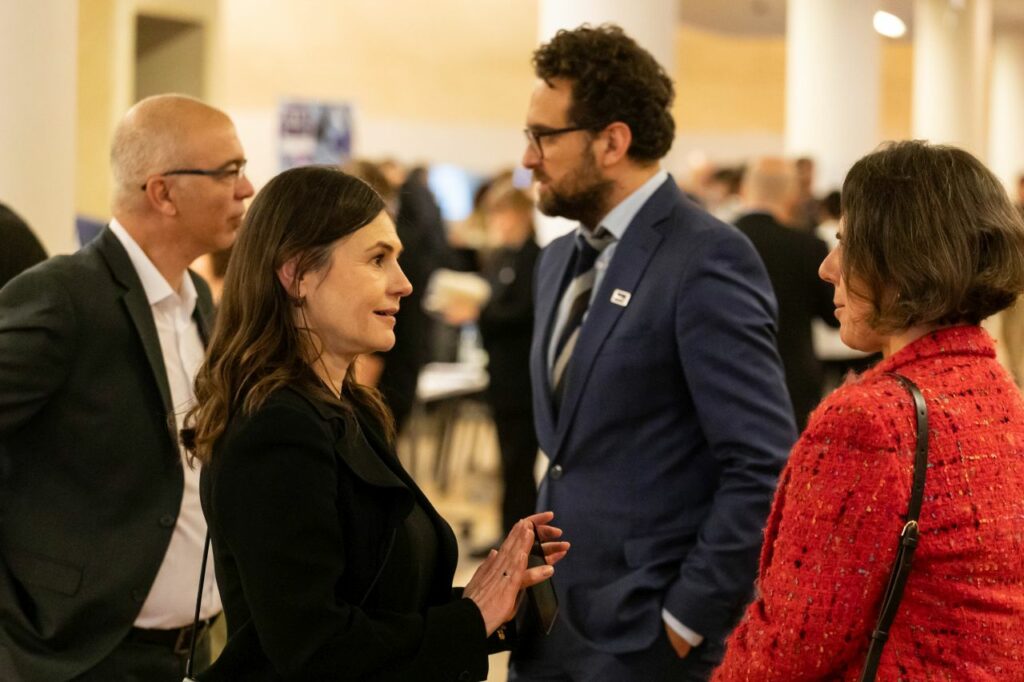
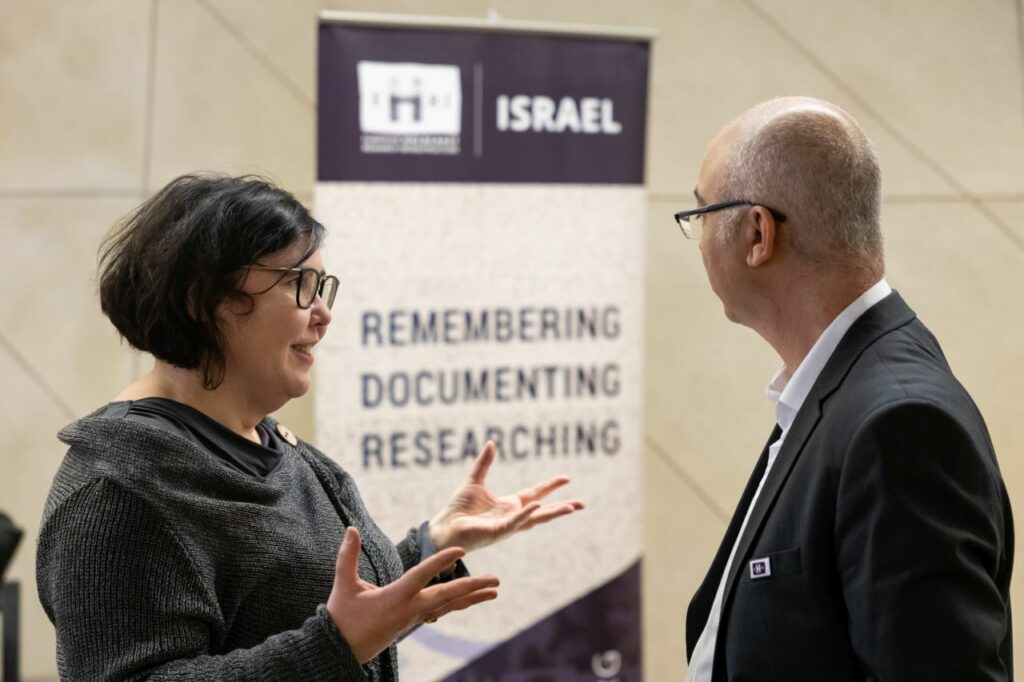
The set-up of this permanent Holocaust research infrastructure and the required staff are paid for by the member states themselves. The Netherlands is the hosting country and will house the central office of EHRI within the NIOD Institute for War, Holocaust and Genocide Studies in Amsterdam. In all member countries of this new EHRI organisation, national nodes will be established, bringing together the leading Holocaust related institutions in coordinated national networks.
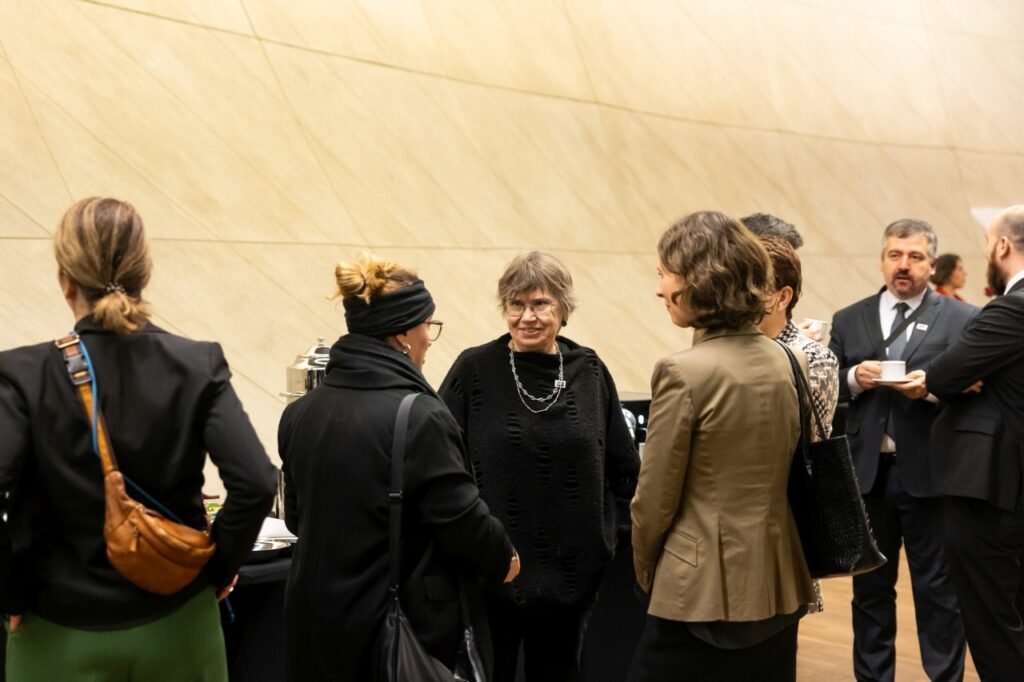
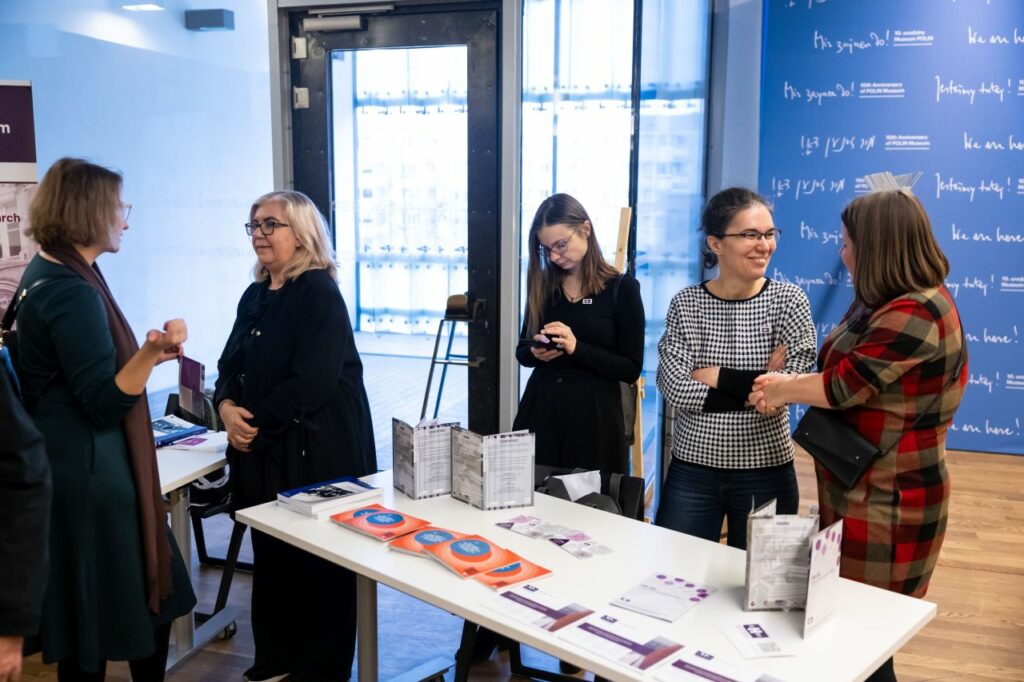
After the launch, EHRI doesn’t have to start from scratch but will be able to continue and expand many of its current activities, building on previous European-funded projects that have been running since 2010. Across these projects, the participating institutions have already developed a solid foundation for transnational Holocaust research and documentation facilities, creating substantial benefits for its many users. For instance, the EHRI Portal and the Conny Kristel Fellowship Programme offer users online and in-person access to Holocaust-related archival material held in institutions across Europe and beyond. At the same time, EHRI’s wider portfolio of services offers important training and networking opportunities, as well as tools for the digital analysis, interpretation, visualisation and dissemination of Holocaust archives and research. With its long-term future secured, EHRI can continuously enhance and expand these services. Thereby it will maximise its scientific impact and contribute to Holocaust-related public policy areas such as the fight against Holocaust denial and distortion, antisemitism, racism and xenophobia.
To find out more about what this important milestone for EHRI means, visit our Frequently Asked Questions.
Photos by: Maciek Jazwiecki / EHRI and POLIN Museum
